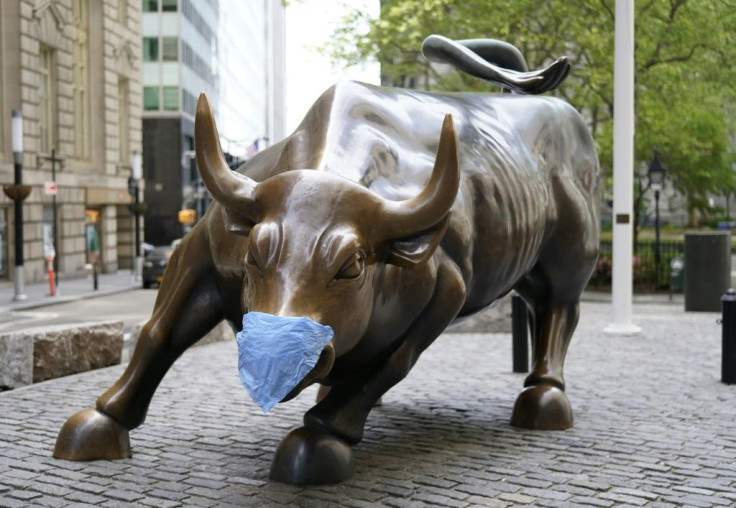A Post-Election Market Rally Awaits Despite The Economic Clouds, Experts Say
KEY POINTS
- Dow Jones Industrial Average closed down 2.29%, while S&P 500 fell 1.86% Monday
- Daily coronavirus infections in the U.S. reached new highs last week
- Stimulus package delayed as Senate and Trump administration fail to reach agreement
- Experts say fundamentals for companies are promising
There is hope around the corner for investors assailed by a torrent of bad news. Despite the crash Monday, the markets could be bracing for a rally post the Nov. 3 U.S. elections, experts say.
U.S. stocks tumbled Monday, with the Dow Jones Industrial Average down 2.3% in its worst session since September, while the S&P 500 fell 1.9% and the Nasdaq Composite index plunged 1.64%. The collapse is attributed to the rising coronavirus infections and a lack of agreement between Washington politicians on rolling out a second relief package to boost the economy ravaged by the coronavirus lockdowns.
Tom Lee, head of research at Fundstrat Global Advisors, and other strategists told CNBC that the coming week will be difficult for stocks, but a post-election rally is certain, no matter who wins, as long as the result is clear. The U.S. presidential elections will be held on Nov. 3.
Lee added that the polls seem to be favoring Joe Biden and if he wins, “there’s a chance the incumbent administration just dawdles on stimulus which would dampen markets in the new year.” He called COVID-19 “as important as the Fed right now,” as it is offsetting easy money.
Ed Keon, chief investment officer at QMA, is quoted in the same report saying, due to the COVID-19 pandemic, the situation will get worse before it gets better, but it is not time to panic yet.
“I think it is unlikely to be the beginning of a major sell-off. I still think underlying fundamentals for companies are quite good. If you look at earnings season, it’s been pretty promising,”
Keon said that good corporate earnings, low-interest rates, and optimism of the election being over will reduce risk and push stock markets up.
Barry Knapp, the managing partner at Ironsides Macroeconomics, believes it will depend on the fate of corporate tax cuts after elections. But Knapp, too, believes a rally is likely. “Elections tend to breed optimism,” he told CNBC.
Meanwhile, Miller Tabak strategist Matt Maley has a slightly different take. He said if history is any indication, stocks always rally in the week before elections.
“Although the market fell 1.9% over the seven days of trading in 2016, you have to go all the way back to 1988 to find another time when it didn’t rally over the last week and a half of the election campaign,” Bloomberg quoted Maley, as saying.
House Speaker Nancy Pelosi is optimistic that a deal can be reached by the end of this week. The number of coronavirus cases in the U.S. is at an all-time high, hospitalizations are up and vaccines are still far away.


© Copyright IBTimes 2025. All rights reserved.





















